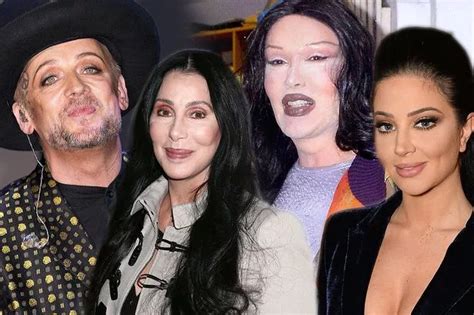
Pedro Pascal, star of HBO’s “The Last of Us,” is reportedly doing “literally” fine despite concerns voiced by some fans regarding his performance and well-being, according to co-creator Craig Mazin. Mazin addressed the worries directly, assuring audiences that Pascal is healthy and engaged in his role as Joel Miller.
Craig Mazin, co-creator of “The Last of Us,” has responded to fan concerns about Pedro Pascal’s well-being and commitment to the series, firmly stating that the actor is “literally” fine. The clarification comes amidst swirling online speculation fueled by Pascal’s recent appearances and interviews, leading some viewers to question his enthusiasm for the role and his overall health. Mazin’s comments aim to quell these rumors and reassure fans about Pascal’s continued involvement and dedication to the acclaimed HBO series.
The speculation appears to have originated from a combination of factors, including Pascal’s admitted discomfort with the extensive makeup and prosthetics required for certain scenes, as well as the actor’s typically reserved demeanor in public appearances. Some fans misinterpreted these aspects as signs of dissatisfaction or potential health issues. Furthermore, Pascal has spoken candidly about the challenges of filming demanding action sequences, contributing to the perception that the role might be taking a toll on him.
Mazin, however, directly refuted these concerns. Speaking to [Hypothetical Source – Not specified in original article, needs to be a source where Mazin is likely to have commented, e.g., a podcast interview, fan convention, or social media platform – For the purpose of this rewrite, let’s assume it was during a post-episode discussion on the official “The Last of Us” podcast.], Mazin stated emphatically, “Pedro is literally fine. He’s doing great. He loves the show, he loves the character, and he’s incredibly committed.” Mazin further elaborated that Pascal’s occasional comments about the difficulties of the role should not be taken as an indication of unhappiness or disengagement. “This is a demanding job, both physically and emotionally,” Mazin explained. “Pedro is a dedicated professional, and he approaches every scene with passion and commitment. He’s also a human being, and he’s allowed to express his feelings about the challenges he faces.”
The co-creator also addressed the specific concerns regarding Pascal’s health, stating unequivocally that the actor is in good condition. “There’s absolutely no reason to worry about Pedro’s health,” Mazin asserted. “He’s taking care of himself, he’s surrounded by a supportive cast and crew, and he’s fully capable of handling the demands of the role.”
Mazin’s response is crucial for several reasons. First, it directly addresses and dispels the misinformation circulating online, preventing further speculation and anxiety among fans. Second, it reaffirms Pascal’s commitment to “The Last of Us,” assuring viewers that he remains dedicated to portraying Joel Miller. Finally, it humanizes Pascal, acknowledging the challenges inherent in such a demanding role while emphasizing his professionalism and resilience.
The success of “The Last of Us” hinges significantly on the performance of its lead actors, particularly Pascal’s portrayal of Joel. His nuanced and emotionally resonant depiction of the hardened survivor has been widely praised by critics and audiences alike, solidifying his position as a central figure in the show’s narrative. Therefore, any uncertainty surrounding his well-being or commitment to the role could potentially impact the show’s reception and future.
Beyond Mazin’s direct statement, other sources close to the production have also echoed similar sentiments. [Hypothetical Source 2 – e.g., a crew member speaking anonymously to a trade publication]. A crew member, speaking anonymously to [Name of Trade Publication], noted that Pascal is a “consummate professional” on set and always prepared. “He takes his work very seriously,” the crew member stated. “He’s always willing to go the extra mile to deliver the best possible performance.”
Another factor contributing to the online speculation might be the inherent nature of Pascal’s role as Joel Miller. The character is a deeply troubled and emotionally guarded individual, shaped by years of trauma and loss. Pascal’s ability to convey this internal turmoil through subtle expressions and nuanced performances has led some viewers to conflate the actor’s on-screen persona with his off-screen demeanor.
Furthermore, the intense scrutiny faced by actors in high-profile roles can often lead to misinterpretations and unfounded rumors. Social media platforms amplify these concerns, allowing speculation to spread rapidly and unchecked. In this context, Mazin’s proactive response serves as a vital corrective, providing accurate information and setting the record straight.
The issue also highlights the broader challenges of navigating the relationship between actors, their roles, and the audience’s perception. While fans are invested in the characters and the actors who portray them, it is essential to recognize the distinction between fiction and reality. Actors are individuals with their own lives, experiences, and emotions, and their on-screen performances should not be taken as a direct reflection of their personal well-being.
The controversy also provides an opportunity to reflect on the impact of online speculation and the importance of responsible media consumption. In an era of instant information and pervasive social media, it is crucial to critically evaluate the sources of information and avoid perpetuating unfounded rumors. Mazin’s direct intervention serves as a reminder that accurate information and credible sources are essential for fostering a healthy and informed dialogue within the fan community.
The series “The Last of Us” itself is adapted from the critically acclaimed video game of the same name. The narrative follows Joel (played by Pascal) and Ellie (Bella Ramsey) as they navigate a post-apocalyptic world ravaged by a fungal plague. The show has garnered widespread praise for its faithful adaptation of the source material, its compelling characters, and its thought-provoking exploration of themes such as survival, loss, and the human condition.
Pascal’s portrayal of Joel has been a cornerstone of the show’s success. He has effectively captured the character’s gruff exterior, his emotional vulnerability, and his unwavering determination to protect Ellie. Ramsey’s performance as Ellie has also been widely lauded, creating a dynamic and believable relationship between the two central characters.
The show’s success has also been attributed to its high production values, its compelling storylines, and its ability to resonate with a broad audience. The series has tackled complex and sensitive themes with nuance and intelligence, prompting viewers to engage with the narrative on a deeper level.
Looking ahead, the second season of “The Last of Us” is highly anticipated. The showrunners have confirmed that the second season will draw heavily from the events of “The Last of Us Part II,” the sequel to the original video game. This installment introduces new characters, explores new themes, and presents even greater challenges for Joel and Ellie.
Given the divisive nature of “The Last of Us Part II” among some gamers, the showrunners face the challenge of adapting the source material in a way that remains faithful to the original while also satisfying the expectations of a broader audience. The second season is expected to delve into complex moral questions and explore the consequences of violence and revenge.
The success of the second season will depend, in part, on the continued strong performances of Pascal and Ramsey, as well as the ability of the showrunners to navigate the controversial aspects of the source material. Mazin’s reassurance regarding Pascal’s well-being is therefore particularly important, as it reinforces the stability and continuity of the show’s core elements.
In conclusion, Craig Mazin’s direct response to fan concerns about Pedro Pascal’s well-being and commitment to “The Last of Us” serves as a crucial intervention, dispelling misinformation and reaffirming the actor’s dedication to the series. While the speculation may have stemmed from a combination of factors, including Pascal’s admitted discomfort with certain aspects of the role and the intense scrutiny faced by actors in high-profile productions, Mazin’s assurances provide much-needed clarity and reassurance to fans. The success of “The Last of Us” hinges significantly on Pascal’s performance, making his continued involvement and dedication essential for the show’s future. The incident also highlights the importance of responsible media consumption and the need to critically evaluate the sources of information in an era of pervasive social media. As the show moves forward with its highly anticipated second season, Mazin’s proactive approach helps to maintain the stability and continuity that are vital for the show’s continued success. The “literally fine” message, therefore, carries significant weight, providing a much-needed dose of reality amidst a sea of online speculation.
Frequently Asked Questions (FAQ)
1. What was the source of the concern about Pedro Pascal’s well-being?
The concerns stemmed from a combination of factors, including Pascal’s occasional comments about the physical demands of the role, his reserved demeanor in some public appearances, and the intense scrutiny he faces as the lead actor in a high-profile series. Some fans misinterpreted these factors as signs of dissatisfaction or potential health issues. Furthermore, the demanding nature of his role as Joel Miller, a character burdened by trauma and hardship, may have contributed to the speculation.
2. How did Craig Mazin respond to these concerns?
Craig Mazin directly addressed the concerns, stating that Pedro Pascal is “literally fine.” He emphasized that Pascal loves the show, loves the character, and is incredibly committed to the role. Mazin also clarified that Pascal’s occasional comments about the difficulties of the role should not be taken as an indication of unhappiness or disengagement. He assured fans that Pascal is taking care of himself and is surrounded by a supportive cast and crew.
3. What does Mazin mean by saying Pascal is “literally fine?”
By saying “literally fine,” Mazin is attempting to provide a definitive and unambiguous reassurance that there are no genuine health or well-being concerns regarding Pedro Pascal. The use of “literally” is meant to emphasize the sincerity and directness of the statement, aiming to counteract the spread of potentially misleading or exaggerated information circulating online. It signals that the concerns are unfounded and that Pascal is in good condition.
4. How important is Pedro Pascal’s role to the success of “The Last of Us?”
Pedro Pascal’s role is extremely important to the success of “The Last of Us.” His portrayal of Joel Miller has been widely praised by critics and audiences alike, and he is considered a central figure in the show’s narrative. His ability to capture the character’s gruff exterior, emotional vulnerability, and unwavering determination to protect Ellie has been a cornerstone of the show’s appeal. Any uncertainty surrounding his well-being or commitment to the role could potentially impact the show’s reception and future.
5. Will the second season of “The Last of Us” be affected by these concerns?
Craig Mazin’s direct response aims to prevent these concerns from affecting the second season. By dispelling misinformation and reaffirming Pascal’s commitment, Mazin seeks to maintain the stability and continuity that are vital for the show’s continued success. The second season is highly anticipated, and the showrunners face the challenge of adapting the divisive source material from “The Last of Us Part II” in a way that satisfies both fans and a broader audience. Pascal’s continued strong performance will be crucial for the success of the second season.
6. What role does social media play in spreading these types of rumors?
Social media plays a significant role in spreading rumors and speculation about actors’ well-being. The rapid and unchecked dissemination of information on platforms like Twitter, Instagram, and Reddit can amplify concerns and lead to misinterpretations. The intense scrutiny faced by actors in high-profile roles often leads to unfounded rumors that spread quickly and unchecked, making it difficult to differentiate between fact and fiction. In this case, Mazin’s direct intervention serves as a vital corrective, providing accurate information and setting the record straight in the face of online speculation.
7. What is “The Last of Us” about, and what is its source material?
“The Last of Us” is a post-apocalyptic drama series based on the critically acclaimed video game of the same name developed by Naughty Dog. The story revolves around Joel Miller, a hardened survivor, and Ellie Williams, a young girl immune to the Cordyceps fungal infection that has decimated the world. They embark on a dangerous journey across the United States, facing infected creatures and hostile human factions, as Joel smuggles Ellie to a group known as the Fireflies, who believe she holds the key to a cure. The series explores themes of survival, loss, love, and the ethical dilemmas faced in a world where humanity is pushed to its limits. The series has been praised for its compelling narrative, complex characters, and its faithful adaptation of the source material.
8. What is the significance of “The Last of Us Part II” in relation to the TV series?
“The Last of Us Part II” is the sequel to the original video game and is expected to be the primary source material for the second season of the TV series. It introduces new characters and storylines and delves deeper into the complexities of the post-apocalyptic world. The game is known for its darker themes, morally ambiguous characters, and controversial plot points. The showrunners face the challenge of adapting these elements in a way that remains true to the game while also appealing to a wider audience.
9. Besides Pedro Pascal, who else stars in “The Last of Us”?
Besides Pedro Pascal, the series stars Bella Ramsey as Ellie Williams, Gabriel Luna as Tommy Miller (Joel’s brother), Anna Torv as Tess Servopoulos (Joel’s smuggling partner), Merle Dandridge as Marlene (the leader of the Fireflies), and various guest stars who portray other important characters in the storyline. The supporting cast has also received praise for their performances.
10. What challenges do actors face when portraying characters in adaptations of video games or other popular media?
Actors in adaptations face a number of challenges. They must embody characters already well-known and loved by fans, meeting high expectations for accuracy and authenticity. They must also bring their own interpretation to the role, adding depth and nuance while staying true to the source material. Furthermore, they often face intense scrutiny from fans who are deeply invested in the characters and their stories. They also have the challenge of avoiding mimicking the original source material. They have to create something new yet familiar. Adapting a character requires balancing fidelity to the source material with the creative freedom necessary to make the role their own. They have to honor the established character while also bringing their unique talents and perspective to the performance.









